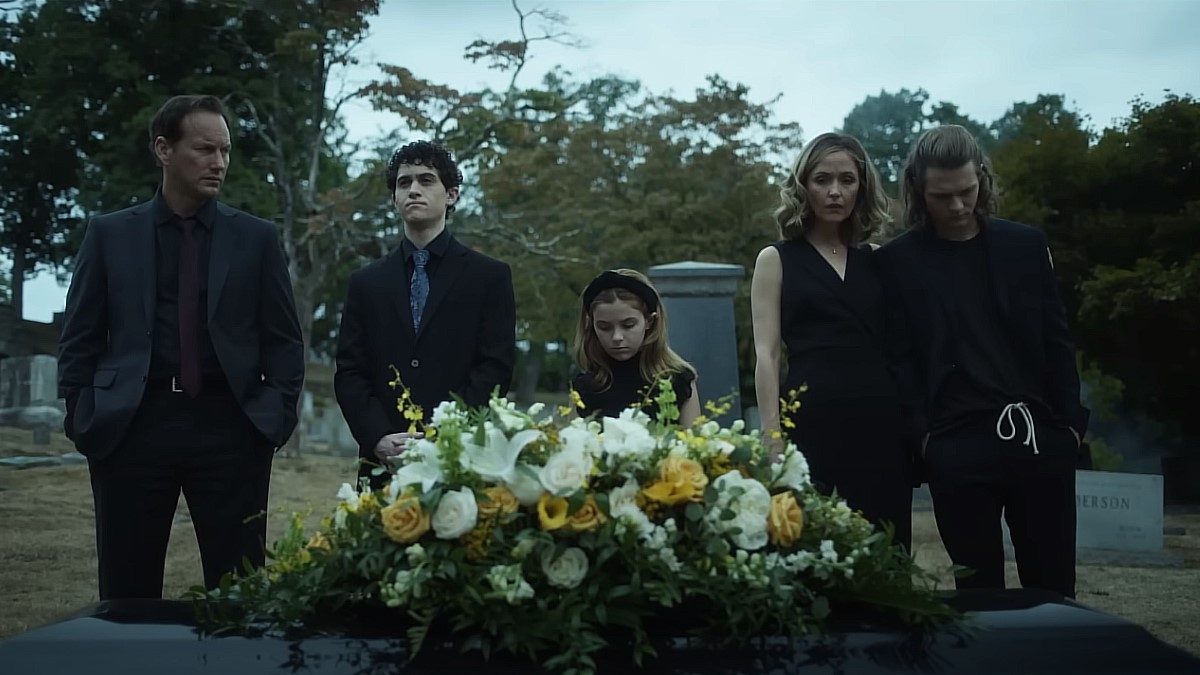Fans rejoiced when it was announced that there would be another Insidious. It had been years since the last installment, and the new film, Insidious: The Red Door, would reunite the original cast: Patrick Wilson, Rose Byrne, Tye Simpkins, and Lin Shaye. The film would also be directed by Wilson, with a story by original screenwriter Leigh Whannell. All the pieces were in place for Insidious: The Red Door to be a hit. Then the reviews came out.
The film currently has a 44% critics score on Rotten Tomatoes, with the general consensus being that it feels like a mishmash of tropes and jumpscares that were better executed in the first two Insidious films. Deadline claimed that The Red Door “delivers little more than a stifling yawn,” while Variety suggested that the franchise has reached the end of the line: “It’s time to close this carnival of souls down.” The audience score is not much better. It currently sits at 68%.
Now, to be fair, reviews have never been glowing for the Insidious franchise. The first film was a surprise box office success and is remembered fondly by audiences, but it only has a 66% critics score on Rotten Tomatoes. It all goes downhill from there: Insidious: Chapter 2 (2013) has a 38% critics score, and Insidious: Chapter 3 (2015) has a 57%. Insidious: The Last Key (2018), generally considered the worst installment in the franchise, is sitting at an abysmal 33%.
So what is the takeaway? Well, for one, critics and horror don’t mix. In the pantheon of great horror films, very few of them have universal praise. Especially when it comes to sequels. Insidious is no different than the horror franchises that precede it. The first film is beloved, and the enjoyment of the (typically lesser) sequels depends on the person watching them. Sometimes a movie can be bad and still be fun.
Will there be an ‘Insidious 6’?

Patrick Wilson, last seen in Insidious: Chapter 2, told Entertainment Weekly that it was important to him to make a direct sequel to the first two films rather than worry about the lore explored in Chapter 3 and The Last Key.
“I went to Blumhouse and said, ‘If I’m going to do this movie and step back into this franchise, I have to address these things,” Wilson explained. “I have to look at Rose Byrne and say, ‘Why did you lie to me for 10 years?’ This is the movie I want to make. So then we got Scott Teems, and we spent literally two-and-a-half, three years writing it.”
For the actor and first-time director, the family dynamic was the most important element of all. “At the film’s core [is] an exploration of a father-and-son relationship,” Wilson added. “With dead people.” There was even a suggestion that the franchise could continue with Simpkins’ character as the focus. However, whether or not we get an Insidious 6 depends entirely on the box office performance of Insidious: The Red Door.











Published: Jul 6, 2023 11:15 pm